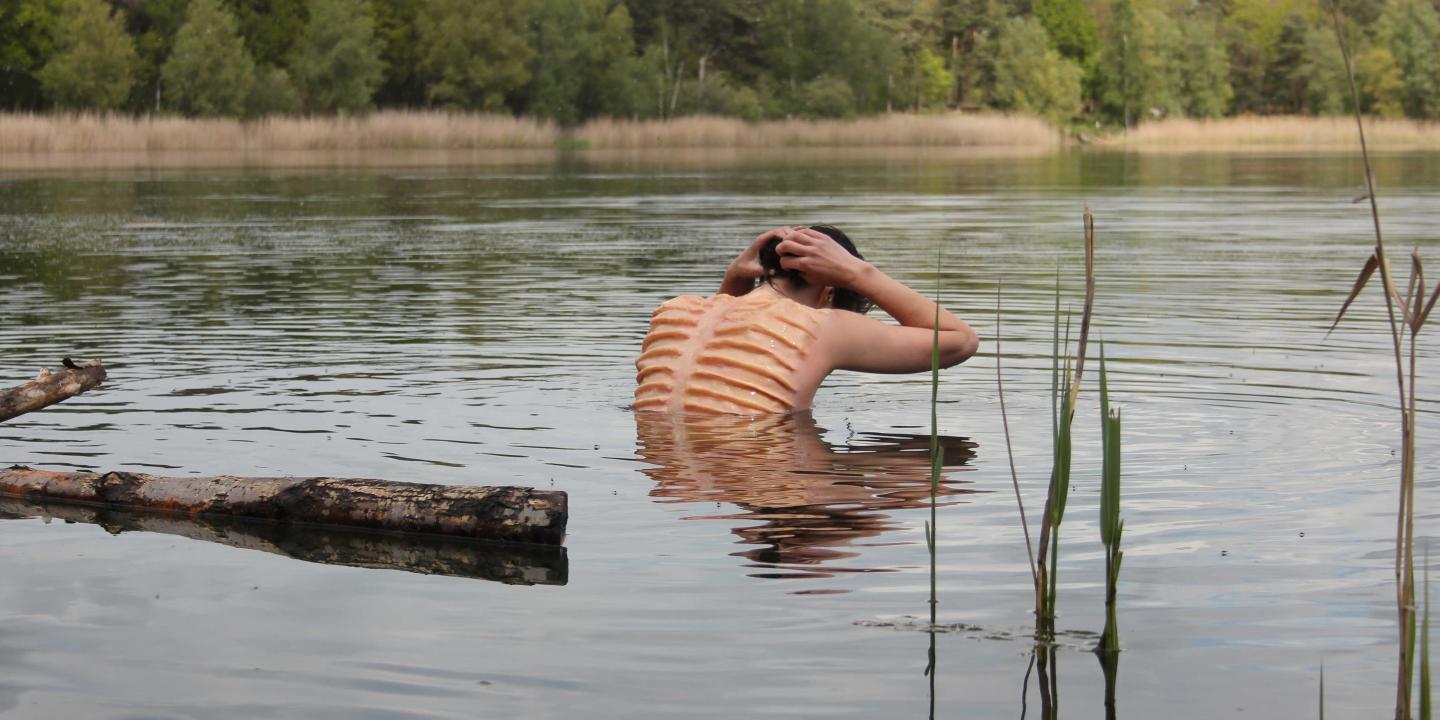The human world often sees itself as separate from the rest of the natural world. Because we have deemed ourselves, ironically, as higher functioning beings over all others on earth, that gives us the impression of superiority. But what if the human race was to return to living more in concert with the natural world through technological advances?
This concept becomes reality in Loes Voerman’s graduation project, 'Community of Symbiosis'. It's presented this year at the Dutch Design Week, as part of the exhibition 'It’s In Our Nature'. The project engages with the question of using technology to collaborate with non-human species. Instead of taking them for granted and using these species for our own purpose, what if we cultivated a relationship with them instead?
Voerman explores this notion through the hypothetical interaction between humans and waterweed, a plant common in freshwater lakes in the Netherlands. In her alternative reality, a human named Emyle has chosen to use a technological advancement to foster this connection; artificial skin allows her to breathe underwater. With this ability, she would be able to establish and maintain a relationship between species.
How would this relationship look like? What would these species like in return for in order to collaborate? Considering that we are in what science has called the anthropocene, an era dominated by human priorities, a world that was not built for human benefit would be an extreme concept, for some, to evaluate. What would a world look like where human benefit was not the primary decision maker in these relationships?
The Community of Symbiosis also forces the audience to consider the philosophical implications surrounding this concept. Some of the ethical considerations that she poses include the duty of humans to undergo surgical procedures to enable this collaboration even without direct benefit to the human in question as well as the deliberation if it is better to make up for our environmental mistakes or to let nature reestablish its own balance. What, ultimately, should our role in nature be?

Share your thoughts and join the technology debate!
Be the first to comment